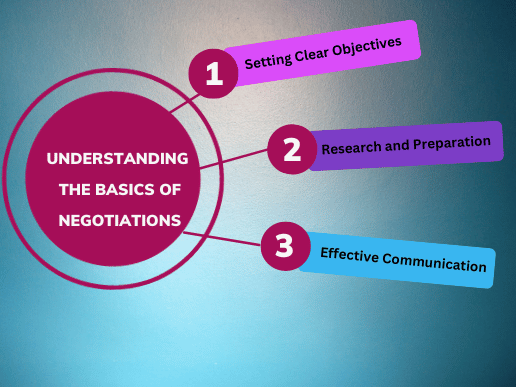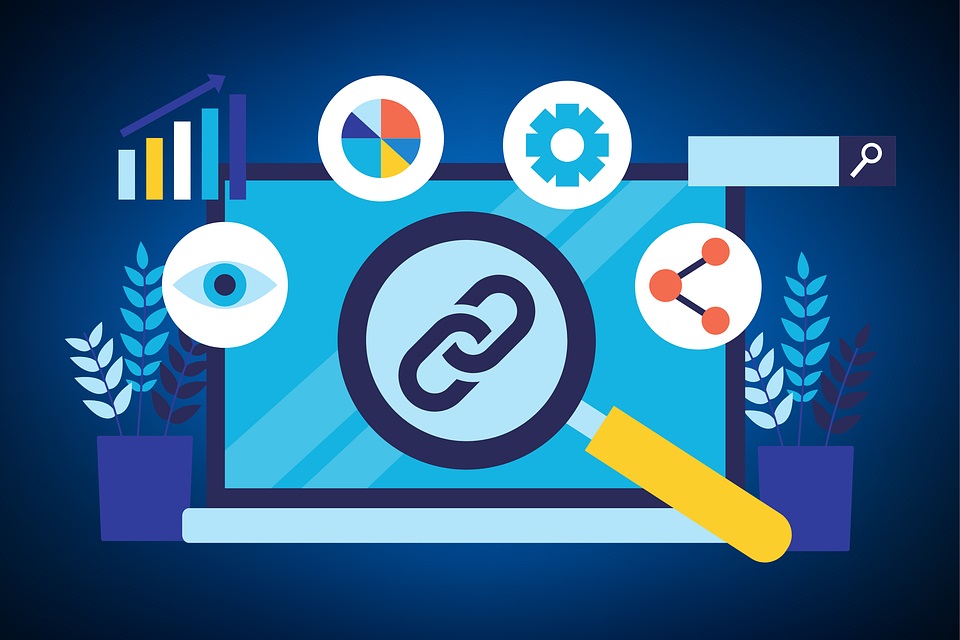
by reinhard | Sep 10, 2023 | Education, Online Marketing
Understanding Cryptocurrency: The Digital Revolution
In today’s fast-paced world, the financial landscape is constantly evolving.
One of the most significant transformations in recent years has been the rise of cryptocurrency.
This article will delve into the fascinating world of cryptocurrency, exploring its history, technology, benefits, and challenges.
Join us on this digital journey to demystify the concept of cryptocurrency.

Table of Contents
- Introduction: The Digital Gold Rush
- What is Cryptocurrency?
- A Brief History of Cryptocurrency
- How Cryptocurrency Works
- Types of Cryptocurrencies
- Bitcoin
- Ethereum
- Ripple (XRP)
- Litecoin
Blockchain Technology: The Backbone of Cryptocurrency
The Benefits of Cryptocurrency
- Security and Transparency
- Accessibility
- Decentralization
- Reduced Transaction Fees
The Challenges of Cryptocurrency
- Volatility
- Regulatory Concerns
- Adoption Hurdles
Investing in Cryptocurrency
- Wallets and Exchanges
- Risk Management
- Research and Analysis
Cryptocurrency and the Future of Finance
The Impact of Cryptocurrency on Traditional Banking
Cryptocurrency in Daily Life
Cryptocurrency: A Global Perspective
Risks and Scams in the Crypto World
Conclusion: The Digital Frontier
Introduction: The Digital Gold Rush
Cryptocurrency has taken the financial world by storm, often referred to as the “Digital Gold Rush.” But what exactly is cryptocurrency, and how does it work? Let’s dive into the basics.
Cryptocurrency is a digital or virtual form of currency that relies on cryptography for security. Unlike traditional currencies issued by governments and central banks, cryptocurrencies operate on decentralized networks based on blockchain technology.
A Brief History of Cryptocurrency
The history of cryptocurrency dates back to 2009 when an anonymous entity known as Satoshi Nakamoto introduced Bitcoin. Bitcoin was the first cryptocurrency and laid the foundation for the thousands of cryptocurrencies that followed. Since then, the crypto market has witnessed exponential growth.
Cryptocurrencies operate on a technology called blockchain, which is a distributed ledger that records all transactions across a network of computers. This technology ensures transparency and security, making it nearly impossible to alter transaction data.
Types of Cryptocurrencies
1. Bitcoin
Bitcoin, often referred to as digital gold, was the pioneer cryptocurrency. It remains the most well-known and valuable cryptocurrency to date.
2. Ethereum
Ethereum introduced the concept of smart contracts, enabling developers to create decentralized applications (DApps) on its blockchain.
3. Ripple (XRP)
Ripple focuses on facilitating fast and low-cost international money transfers for financial institutions.
4. Litecoin
Litecoin is often considered the silver to Bitcoin’s gold, offering faster transaction confirmation times.
Blockchain technology is the cornerstone of cryptocurrency. It ensures the integrity of the system by recording all transactions in a transparent and secure manner.
The Benefits of Cryptocurrency
1. Security and Transparency
Blockchain technology provides robust security, making it challenging for hackers to compromise the system. Additionally, all transactions are recorded on the blockchain, ensuring transparency.
2. Accessibility
Cryptocurrencies are accessible to anyone with an internet connection, promoting financial inclusion worldwide.
3. Decentralization
Cryptocurrencies are not controlled by any central authority, reducing the risk of government interference.
4. Reduced Transaction Fees
Cryptocurrency transactions often come with lower fees compared to traditional financial systems.
1. Volatility
Cryptocurrencies are known for their price volatility, which can lead to significant gains or losses for investors.
2. Regulatory Concerns
Governments and regulatory bodies are still grappling with how to regulate cryptocurrencies effectively.
3. Adoption Hurdles
Cryptocurrency adoption faces barriers such as technological complexity and skepticism from traditional financial institutions.
Investing in Cryptocurrency
Investing in cryptocurrency requires careful consideration and research. It’s essential to choose a secure wallet and reputable exchange, manage risks, and stay informed about market trends.
Cryptocurrency and the Future of Finance
Cryptocurrency has the potential to revolutionize the financial industry by offering faster, more accessible, and efficient financial services.
The Impact of Cryptocurrency on Traditional Banking
Traditional banks are exploring ways to integrate cryptocurrency services to remain competitive in the digital age.
Cryptocurrency in Daily Life
From online purchases to remittances, cryptocurrency is finding its way into various aspects of daily life.
Cryptocurrency: A Global Perspective
Cryptocurrencies are not limited by borders, making them a global phenomenon with diverse use cases and implications.
Risks and Scams in the Crypto World
Investors should be cautious of scams and fraudulent schemes prevalent in the crypto world. Due diligence is crucial when investing in this space.
Conclusion: The Digital Frontier
Cryptocurrency represents a paradigm shift in the world of finance.
While it comes with its challenges and risks, its potential to reshape the financial landscape is undeniable.
As the crypto industry continues to evolve, staying informed and making informed decisions will be key to navigating this exciting digital frontier.
FAQs
1. Is cryptocurrency legal?
Cryptocurrency’s legality varies by country. Some nations have embraced it, while others have imposed restrictions.
2. Can I mine cryptocurrency?
Yes, you can mine certain cryptocurrencies using specialized hardware and software.
3. How do I store my cryptocurrency securely?
You can store your cryptocurrency in digital wallets, with options ranging from online wallets to hardware wallets for enhanced security.
4. What is the future of cryptocurrency?
The future of cryptocurrency holds potential for continued growth and adoption, but it also faces regulatory challenges that will shape its trajectory.
5. Is cryptocurrency a safe investment?
Cryptocurrency investments come with risks due to price volatility, so it’s essential to conduct thorough research and only invest what you can afford to lose.

by reinhard | Mar 13, 2023 | affiliate marketing, Coaching, Education, email marketing, freelancing, Lead generation, make money from home, Online Marketing, Online Shopping, Search Engine Optimization
Are you interested in starting an online store or have an existing one? Then you need to know about eCommerce SEO!
First of all, let's break down what eCommerce SEO means. "Ecommerce" means buying and selling things online. While "SEO" stands for Search Engine Optimization.
Basically, eCommerce SEO means optimizing your online store. As a result, appears higher in search engine results. Especially, when people search for products you sell.
Why is eCommerce SEO important?
Because, when people search for something online, they usually only look at the first few results.
In that case, your store isn't showing up on the first page of search results.
And it is unlikely that people will find it.
For this reason, optimize your store for search engines. Henceforth, you can attract more visitors and potential customers.
In this article, we will cover the ultimate ecommerce SEO strategies you need to know for online success.
Research your Keywords for eCommerce SEO
Indeed, optimize your store for search engines. Because, you need to know what keywords people are using to search for products like yours. Therefore, use keyword research tools like Google Keyword Planner to find the best keywords for your store.
Optimize your product pages:
Make sure each of your product pages has a unique and descriptive title.
As well as a detailed product description. Likewise, use your chosen keywords in these areas. But don't overdo it.
Then make certain your content reads naturally and provides value to the reader.
Of course, don't forget to send your web page or blog your subscribers.
Why Improving your website's loading speed is an Important part of eCommerce SEO
As a matter of fact, slow-loading websites can negatively affect your search engine rankings. Again, use tools like Google's Page Speed Insights to find areas for improvement.
Get Quality Backlinks for Your eCommerce Website
Given these points, backlinks are links to your website from other websites. Because, the higher quality websites that link to your store, the higher your search engine rankings can be. Of course, you may want to reach out to other websites in your industry. And offer to write guest blog posts or collaborate on content.
Use social media for your eCommerce Search Engine Ranking
Social media can be a great way to drive traffic to your store.
In addition, improve your search engine rankings. For this reason, share your products and content on your social media profiles.
And encourage your followers to share them as well.
In Summary of eCommerce SEO
In summation, commerce SEO is necessary for online success.
You can increase your ecommerce site's search engine visibility.
And draw in more prospective customers.
As a matter of fact, use these tactics described in this article. However, keep in mind to prioritize local SEO and technical SEO.
Also, content marketing, link development, and keyword study.
Given these points, you can outrank your rivals and succeed online with enough time and work.

by reinhard | Mar 11, 2023 | affiliate marketing, Coaching, Education, email marketing, freelancing, Lead generation, make money from home, Online Marketing, Online Shopping, Searcg Engine Optimization
Persona-based Marketing:
As a marketer, you are always looking for ways to increase your revenue and grow your business.
One way to achieve this is through persona-based marketing.
Persona-based marketing is a strategy.
Involves creating detailed profiles of your target audience.
Or personas, to better understand their needs and preferences.
So, use these personas to guide your marketing efforts.
Because you can create more personalized and effective campaigns.
In fact, will help you reach your goals.
In this article, we will discuss how you can maximize your affiliate program's potential with persona-based marketing.
The Importance of Persona-based Marketing Understand Your Target Audience
The first step in creating effective personas is to understand your target audience.
Because, you need to know who they are, what their needs and preferences are, and what motivates them to make a purchase.
To do this, you can use a variety of tools, such as surveys, customer feedback, and market research.
Develop a Detailed Persona-based Marketing Info
First of all, have a clear understanding of your target audience.
So, you can begin developing detailed personas.
Again, these personas should include certain information.
Such as age, gender, income, education level, occupation, and interests.
Equally important, you should also include information about their buying habits.
Especially, preferred channels for communication, and pain points.
Create Personalized Content
Once you have developed your personas, you can use them to guide your content creation efforts.
In other words, create content that is tailored to the specific needs and preferences of your target audience.
As a result, you can increase engagement and drive conversions.
Use Targeted Advertising for Persona-based Marketing
Another way to use personas in your affiliate marketing efforts is through targeted advertising.
So, use the information you have gathered about your personas.
Therefore, you can create highly targeted ads.
That are more likely to resonate with your target audience.
Measure Your Results for Persona-based Marketing
Finally, it is important to measure the results of your persona-based marketing efforts.
Because this will help you to decide what is working and what is not.
For this reason, you can adjust as needed.
Also, use a variety of tools to measure your results.
Such as Google Analytics, social media analytics, and email marketing metrics.
In Conclusion of Persona-based Marketing
In conclusion, persona-based marketing is a powerful tool.
That can help you to maximize your affiliate program's potential.
Certainly, by understanding your target audience.
So, develop detailed personas and create personalized content.
In that case, use targeted advertising, and measure your results.
After all, you can create more effective and engaging campaigns.
Of course, will drive conversions and increase your revenue.
If you want to read more information about how to boost your website traffic just visit --> "https://seowebtoolsmagic.com"



































